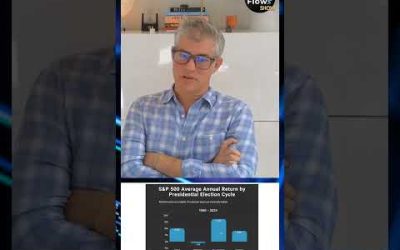Key takeaways
- Exchange-Traded Funds emerged as the investment vehicle of choice for European households seeking exposure to capital markets. Listed and tradeable UCITS, ETFs have experienced significant momentum in recent years across the single market in Europe.
- The driving force behind the recent ETF expansion extends beyond regulatory harmonization to encompass the recent consolidation of stock exchange markets across the major financial services centres in Europe.
- The decoupling of marketing authorization from local listing requirements is likely to become the standard approach across Europe, further advancing the integration of European capital markets. It is also proof that markets, when left free to operate, can fill consolidation and liquidity gaps autonomously, better than any regulation could ever facilitate.
Decoupling Stock Exchanges from EU Member States. The Future of ETF Offer to Italian Investors.
Exchange-Traded Funds emerged as the investment vehicle of choice for European households seeking exposure to capital markets. Listed and tradeable UCITS, ETFs have experienced significant momentum in recent years across the single market in Europe.
This growth trajectory in Europe has been particularly noteworthy in Italy, where the regulatory framework governing the ETF offer to Italian investors has been recently simplified as a consequence.
The evolution in this space is driven by broader trends in European market integration, in one with the Capital Markets Union delivering at last tangible results in connecting household savings with investment opportunities.
Market Consolidation and The European ETF Revolution
The ETF offer to Italian investors, same as to any other European investor, remains a function of the marketing passport under the UCITS directive. ETFs in Europe are by and large structured as UCITS with the ability to be passported across the EU 27. The passport mechanism remains a crucial step for the multitude of Irish and now also Luxembourg-domiciled UCITS ETFs seeking to expand their reach throughout Europe.
The driving force behind the recent ETF expansion extends beyond regulation to encompass the recent consolidation of stock exchange markets across the major financial services centres in Europe. The frantic M&A activity in the European stock exchange market space created platforms capable of serving multiple jurisdictions simultaneously, reducing duplicative costs and streamlining access for both issuers and investors. The outcome of this consolidation has proven particularly consequential for the ETF offer to Italian investors, as it has enabled decoupling of marketing authorisations and listing obligations.
The Decoupling of Solicitation and Listing
The solicitation of ETFs in certain European domiciles is now officially divorced from the requirement to obtain listing on the national stock exchange. That was made clear for what concerns the ETF offer to Italian investors, but we expect it will become the norm throughout the single market. A significant departure from historical practice, the implications of this new trend for the ETF offer to Italian investors are substantial, with ETF providers seeking to serve the Italian market being now able to leverage also listings obtained elsewhere in Europe.
The recent story of Euronext exemplifies the consolidation trend reshaping the ETF offer to Italian investors and in the broader European capital markets. Established in 2000 through the merger of the Amsterdam, Paris, and Brussels stock exchanges, Euronext has pursued a strategy of expansion and consolidation over the past two decades. The exchange operator’s journey included a merger with the NYSE, acquisitions of LIFFE in the UK and the Portuguese stock exchange and most recently the integration of stock exchanges in Ireland, Oslo, and Italy. This progressive expansion has created a unified market infrastructure spanning multiple European jurisdictions.
The recently launched Euronext ETF Europe represents the culmination of this consolidation strategy, purporting to be the first fully integrated European marketplace for ETFs and ETPs. Dubbed already as contributing to the advancement of the European Savings and Investment Union, this initiative unifies listing, trading, clearing, and settlement processes to enhance efficiency, transparency, and growth in the European ETF ecosystem.
The new infrastructure delivers tangible benefits across the ecosystem. ETF issuers gain access to simplified listing processes and pan-European distribution channels with significantly reduced regulatory duplication. Rather than dealing with separate listing requirements and processes in each jurisdiction, issuers can leverage a single platform to reach investors across multiple markets. Investors, on the other hand, access a wider, more cost-effective range of ETFs with improved liquidity and pricing transparency. The unified order book structure ensures that buy and sell orders from across the Euronext network can interact efficiently, enhancing price discovery and execution quality. Brokers benefit from unified market access and consolidated market data, simplifying their operational infrastructure and reducing the complexity of serving client. These efficiencies translate into lower costs that can ultimately benefit end investors of these listed products.
The Italian Framework for Cross-Listed ETFs
A pivotal development in the evolution of the ETF offer to Italian investors is summarised in a public notice issued by Consob, one of Italy’s securities and markets regulators, in June 2025. This notice provides crucial clarity by formally acknowledging that European UCITS ETFs can be offered to Italian investors even when these are listed on a market outside of Italy. This explicit confirmation validates the decoupling of solicitation rights from local listing requirements.
The Consob notice establishes clear preconditions for the ETF offer to Italian investors when these are listed outside Italy. First, the ETF provider must complete the passport procedure through the home state authority of the UCITS ETF. Second, in cases involving offers to retail investors, the provider must submit UCITS documentation through the Consob dashboard for publication purposes. Third, the provider must ensure compliance with European and national Italian legislation on marketing communications, including related submission obligations with Consob.
For retail-focused offerings of ETF offer to Italian investors, ETF providers will likely have to offer local facilities for investors, delivered in Italian language, though these facilities may be digitalized. This requirement ensures that Italian retail investors maintain access to essential services and information, regardless of where the ETF is listed.
Simplification of Listing Requirements in Italy
Complementing the regulatory clarification on the offer of cross-listed ETFs, Italy has recently simplified the requirements for ETFs seeking actual listing on Borsa Italiana. It is very recent news that ETFs listing on the ETF segment of Borsa Italiana no longer need to produce a separate listing document, according to Consob. Italy was the only member state to have adopted this requirement, which was viewed by some as expression of gold-plating. The removal of the obligation to produce a listing document further streamlines the ETF offer to Italian investors for those providers who choose to pursue Italian listing, making also listing on an Italian exchange more appealing to ETF issuers in general.
It is worth noting that the historical prevalence of a local listing was essentially commercial and operational in nature, due to the fragmentation of markets across Europe. This fragmentation made it difficult for local brokers in a member state to efficiently operate on another European market, creating practical barriers that effectively necessitated local listings even when not legally required. Historically. there seems not to have been any provision against the ETF offer to Italian investors involving ETFs listed outside Italy.
The new Euronext infrastructure addresses these historical barriers directly. One of the strengths of the Euronext ETF Europe initiative is the introduction of a centralized order book. By connecting to any Euronext venue, brokers and trading members gain access to the full range of ETFs available on Euronext through a harmonized membership model and unified infrastructure. This connectivity eliminates the operational impediments that previously made the ETF offer to Italian investors challenging without local listing, enabling true pan-European market access.
The decoupling of marketing authorization from local listing requirements is likely to become the standard approach across Europe, further advancing the integration of European capital markets. It is also proof that markets, when left free to operate, can fill consolidation and liquidity gaps autonomously, better than any regulation could ever facilitate.
The post Decoupling Stock Exchanges from EU Member States. The Future of ETF Offer to Italian Investors. appeared first on Veneziano.






